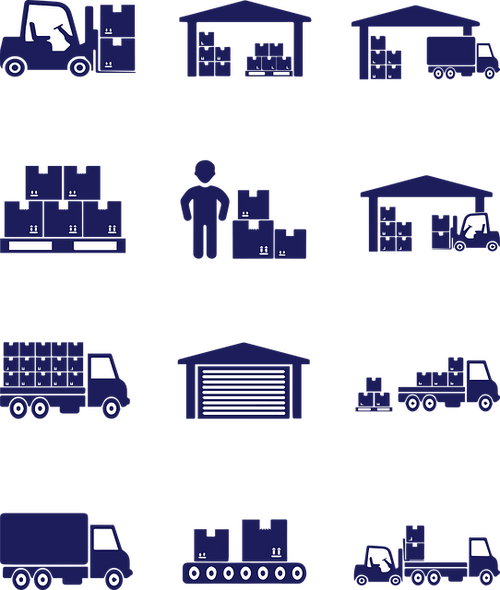Ready to Trade Netflix for Netflix in Another Language?
Let's be honest – we've all been there. You're scrolling through Netflix, trying to find something new to watch, and you stumble upon a foreign-language film or TV show. You click on it, intrigued, but then you hit a wall – you can't understand a word. And then, a thought pops into your head: "I could do that?" Maybe you've always been a chatterbox, effortlessly switching between languages with your friends. Or maybe you've always been fascinated by the intricacies of different cultures and how language plays a vital role in shaping them. Whatever your reason, the desire to translate languages is a powerful one, and it's a skill that's in high demand. But let's be real – how do you turn your linguistic prowess into a real-world career? The answer is simpler than you might think: become an online translator! The digital age has opened up a whole new world of opportunities for language enthusiasts, and you can be a part of it. So, ditch the daydream and get ready to turn your passion for languages into a fulfilling and profitable career.
1. The Language of Opportunity: Choosing Your Languages
The first step in your translation journey is to choose your linguistic weapons, so to speak. What languages are you fluent in? Do you have a knack for Spanish, a love for French, or a fluency in Mandarin? This is where your passion comes into play. Think about the languages that excite you, the ones that you've always wanted to master. But don't just go with your heart. Consider the market demand for different languages. Certain languages, like Spanish, Mandarin, and German, are in high demand due to the global reach of businesses and organizations. Researching popular language pairs and their corresponding industries will give you a better idea of which languages to focus on. For example, if you're interested in translating legal documents, you might want to consider languages like French, German, or Spanish, which are commonly used in international legal agreements. Or, if you're passionate about technology, languages like Japanese, Korean, or Chinese might be in high demand for translating software manuals, websites, and other technical documents.
2. Sharpening Your Translation Tools: Level Up Your Skills

Think of translation as a craft, like carpentry or painting. You can't just pick up a hammer and start building a house, and you can't expect to translate complex documents without the right tools and knowledge. That's where skill development comes in. Being fluent is a great start, but it's not enough to translate effectively. You need to understand the nuances of translation, the art of conveying meaning accurately, and the importance of avoiding awkward phrasing. Think of it as fine-tuning your language skills to translate not just words, but the essence of a message. For example, you might be able to translate "I love you" into another language, but can you accurately convey the different nuances of love, like romantic love, familial love, or platonic love? This is where your translation skills come into play. There are tons of resources available to help you level up your skills. Online courses, translation software programs, and even certification programs can teach you the intricacies of translation, from grammar and vocabulary to cultural sensitivity and style. Let's face it – sometimes, a direct translation just doesn't cut it. You need to be able to understand the cultural context of the text and how it might affect the meaning. For example, a direct translation of "How are you?" into Spanish might not be appropriate in all situations, and you need to be aware of these cultural nuances to ensure your translations are accurate and culturally sensitive. Don't be afraid to invest in your education – it will pay off in the long run.
3. Mastering Your Niche: Finding Your Specialty
You don't have to be a jack-of-all-trades. In fact, specializing in a specific area of translation can make you a sought-after expert. Consider your interests and passions. Are you a tech wiz? Maybe you want to translate software manuals or website content. A foodie? Translating restaurant menus or food blogs could be your calling. Are you fascinated by the legal world? Legal translation might be the perfect fit. By choosing a niche, you're not only honing your skills in a specific area, but you're also making yourself more attractive to clients who need specialized translation services. It's like becoming a master craftsman in a particular trade – you'll be the go-to expert in your chosen field. For example, if you specialize in medical translation, you'll need to be familiar with medical terminology, drug names, and medical procedures. This expertise will make you valuable to clients in the healthcare industry who need accurate and reliable translations.
4. Building Your Portfolio: Showcasing Your Skills
Remember the old saying, "Practice makes perfect?" Well, it rings true in the world of translation. Start by translating for friends, family, or even volunteer for non-profit organizations that need translation assistance. This will give you valuable experience and a portfolio of work to showcase your skills to potential clients. Don't be afraid to get creative! You can even translate content for your own blog or social media pages. This can be a great way to showcase your language skills and attract clients who are looking for someone with your specific expertise. For example, if you're passionate about travel, you could translate blog posts or articles about different destinations, showcasing your knowledge of the language and culture. The key is to highlight your best work – the projects that you're most proud of.
5. Connecting with the World: Networking and Building Relationships

Think of the translation community as a global network of language enthusiasts. Joining online translation communities, forums, and social media groups is a great way to connect with fellow translators, exchange tips, and learn about new opportunities. It's like a virtual coffee shop for translators – a place to chat, share knowledge, and build relationships. These networks are invaluable resources for finding clients and staying up-to-date on industry trends. You never know who you might meet or what opportunities might come your way. For example, you might connect with a translator who specializes in a different language pair and learn about a new niche you could explore. Or, you might find a client who needs a translator for a specific project. So get out there and start networking!
6. Choosing Your Platform: Finding Your Translation Launchpad
Once you've got your skills and portfolio in order, it's time to find a platform to launch your translation career. The beauty of online translation is that there are countless options. Popular platforms like Upwork, Fiverr, and ProZ.com offer a wide range of translation projects, connecting translators with clients from all over the world. Each platform has its own unique features, pricing structures, and clientele, so take the time to research and find one that aligns with your preferences and goals. It's like choosing the right car for your needs – you want a platform that's reliable, efficient, and easy to navigate. For example, Upwork is known for its large pool of freelance clients, while ProZ.com focuses on professional translators and provides resources for industry development.
7. Setting Your Rates: Valuing Your Skills and Expertise
One of the most important aspects of being an online translator is setting your rates. This is where you need to be confident and assertive. Don't undervalue your skills and expertise. Research average rates for translators in your field, taking into account factors like your experience, language combinations, and the complexity of the projects. For example, if you're a highly experienced translator with a specialized niche, you can charge higher rates than a beginner translator. Remember, you're not just translating words; you're translating ideas, cultures, and emotions. Your work has value, so be sure to reflect that in your pricing. And don't be afraid to negotiate with clients – a fair price ensures that you're compensated appropriately for your time and effort.
8. Thinking Like a Business Owner: Managing Your Finances and Operations
Even if you're a solo freelancer, it's essential to think like a business owner. This means managing your finances, invoicing clients, keeping track of your work, and staying organized. There are countless tools and resources available to help you streamline these processes. Consider using online accounting software, project management apps, and time-tracking tools. These tools can help you stay on top of your finances, manage your workload effectively, and ensure that you're getting paid for your work. For example, tools like QuickBooks or Xero can help you manage your invoices and track your income and expenses. Project management apps like Trello or Asana can help you keep track of your projects and deadlines, while time-tracking tools like Toggl or Clockify can help you monitor your work hours and ensure you're getting paid for your time.
9. Never Stop Learning: Staying Ahead of the Curve
The world of translation is constantly evolving, so it's important to stay updated on industry trends, language updates, and new technologies. Translation software, artificial intelligence, and language learning apps are constantly changing the landscape. By keeping up with the latest developments, you can enhance your skills, expand your knowledge, and stay competitive in the market. For example, you might want to learn about new translation software programs that can help you streamline your workflow or explore the use of artificial intelligence for translation tasks. Consider taking online courses, attending industry conferences, and reading articles and blogs related to translation. The more you learn, the more valuable you become in the translation industry.
Ready to Take the Plunge?
So there you have it – a comprehensive guide to becoming an online translator. It's not always easy, but it's an incredibly rewarding career path. You'll be helping people communicate across cultures, expanding your knowledge, and building a career you love. What are you waiting for? Get out there, unleash your linguistic skills, and start translating! The world needs your language skills.














































































































